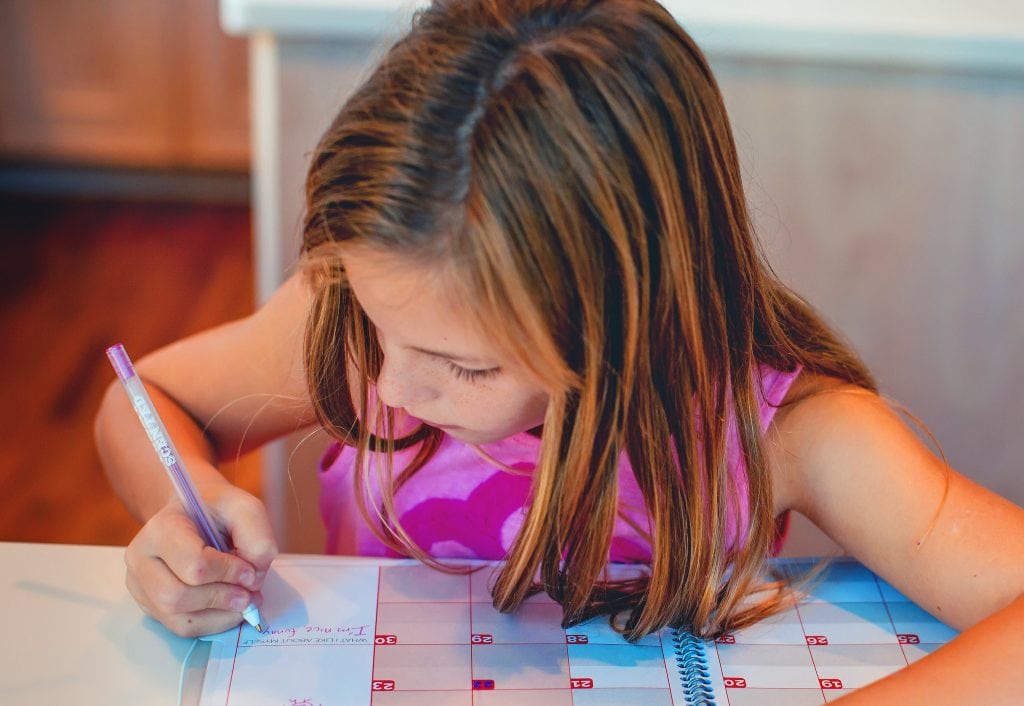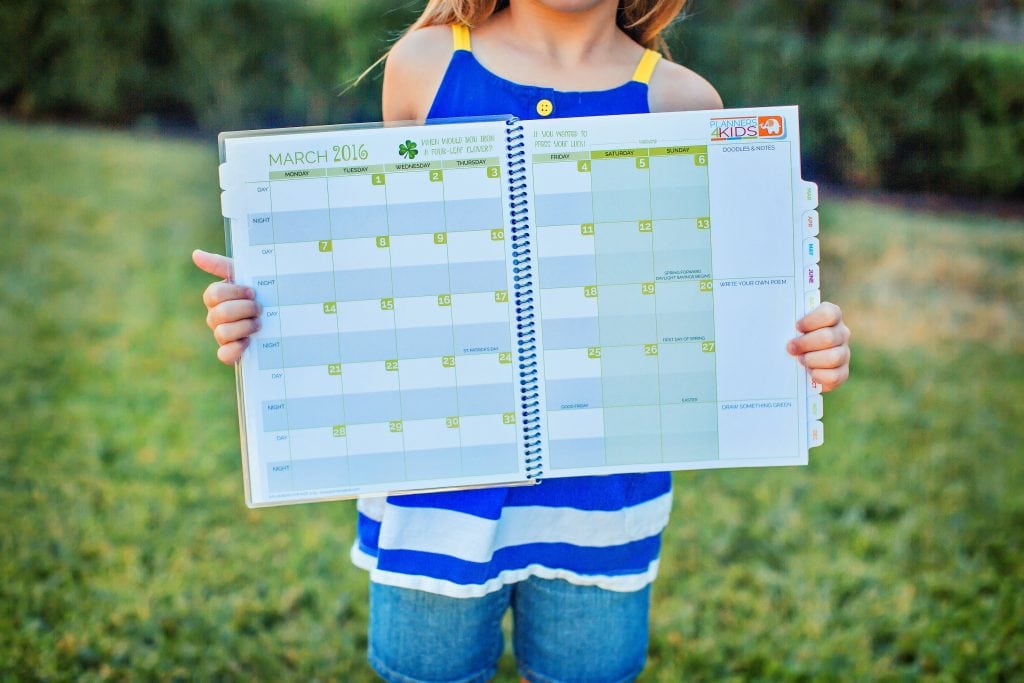We’ve probably all heard our kids ask, “Is today gymnastics day?” or, “When can we go to the park?” We understand time constraints and schedules, but it’s difficult for kids to understand when they do not have a calendar to refer to.
From Stay at Home Mom to Small Business Owner
I always knew there was something for me and I was always working on ideas here and there. My notebook was full of them. But the time to act was when it hit home. When I saw my daughter at age seven constantly struggling with organization and time management, I knew I had to do something. I could see myself at her age, having the same problems. I didn’t learn organization until college, and by then it was very difficult to catch up. I did not want her to go through the same thing.
So I started looking for some sort of planner or calendar geared towards kids. At the time, all I could find were large wall calendars aimed at preschoolers. I knew that would not work, so I purchased the simplest regular planner I could find. However, she wanted to doodle and draw and needed lots of room to write because of her handwriting. In addition, she simply was not engaged with it at all because it was not aimed at kids. Then I moved on to a cute wall calendar. She had a hard time writing on the calendar while it was hanging, and she did not like that the weeks started on Sunday. To her, this made no sense. Why did the weeks on planners and calendars start on Sunday when she thought of a week starting on Monday?
I decided to make a planner just for her. I was not sure where or how to start, but I knew I just had to go for it. With the constraints of the word processor I was using, it was very difficult and took weeks to get it into a format I thought was right for her. I had to figure out how to make it fun for her. I used colors, put her picture on the front, made plenty of room for her to write, added jokes, and made a bulleted list in the front she could refer to on how to use her planner. I created stickers with cute graphics for kid-specific activities, such as birthday parties and play dates. I realized that if my kid was having trouble, there must be other kids having the same problem. It was time to see if I could make planners available to other kids too.
The most difficult part in starting, and then continuing, was realizing there was nothing out there already. There was no template to follow. I was not sure kids were even ready for planners. I also worried that parents and kids would not like that I was creating a planner that started on Monday to match the way kids see the week. As a planner myself, it was hard to keep moving without knowing the end result.
Another hurdle I had to overcome was that a change had to happen from within myself. If I were to pursue making planners for other kids, I would have to be ready for criticism and change. However, I knew had to take the leap. I could also no longer afford the luxury of being shy. I made a decision to learn how to network and learn how to be outgoing in order to pursue my idea and make something happen. Not only was the planner making my daughter learn time management, it was making me learn how to go out and get what I wanted.
Just Start
I had the idea for planners for at least a year, but something was always happening. I soon realized there was never going to be a “good” time. When I finally started, I had a newborn. This was definitely not a good time, but during naps I would plug along and keep at it. The initial planner was far from perfect, but it was a start. In all, it took two years to get the planner the way I wanted it and figure out how to make it ready to sell.
Keep Learning
I went to teachers and parents, and listened to kids. I made small batches of planners and gave them to kids and parents and asked questions every few weeks. As I got feedback, I was able to make changes. I had to learn how to take constructive criticism, and learn when well-meaning advice was not the right fit for my ultimate vision for getting kids organized. However, there is always more to learn. My daughter is getting older, but still not ready for a sophisticated planner. I have to keep checking in and seeing what her needs are as she grows.
Make A Decision and Move On
There were times when indecision was stopping me from moving forward. I had to learn to make peace with decisions I had made and keep moving. I made many mistakes, but I had to change my thinking and turn them into learning experiences. For example, I discovered that there are planner “seasons” when more purchases are made and I had to adjust my inventory accordingly. My degree is in art, not business, but I had to learn the business end too. Things like how to price the planners appropriately and how to research the best materials for the price were part of the process.
Delegate
One of the hardest things to do as an entrepreneur is to let go of any aspect of your “baby.” However, I learned that small repeatable tasks simply are not worth my time. The opportunity cost of not delegating is not creating.
I am setting out to make a change in kids’ and parents’ lives. This is no small task and I’m not taking it lightly. I know that kids CAN learn to plan at a young age, and they WANT to know what is coming up. I’ve seen the changes in my own kids and heard from other parents how their kids have learned to plan. Nothing is impossible, once we make a decision and go for it.
Check out Tiffany’s custom Planners4Kids here!











